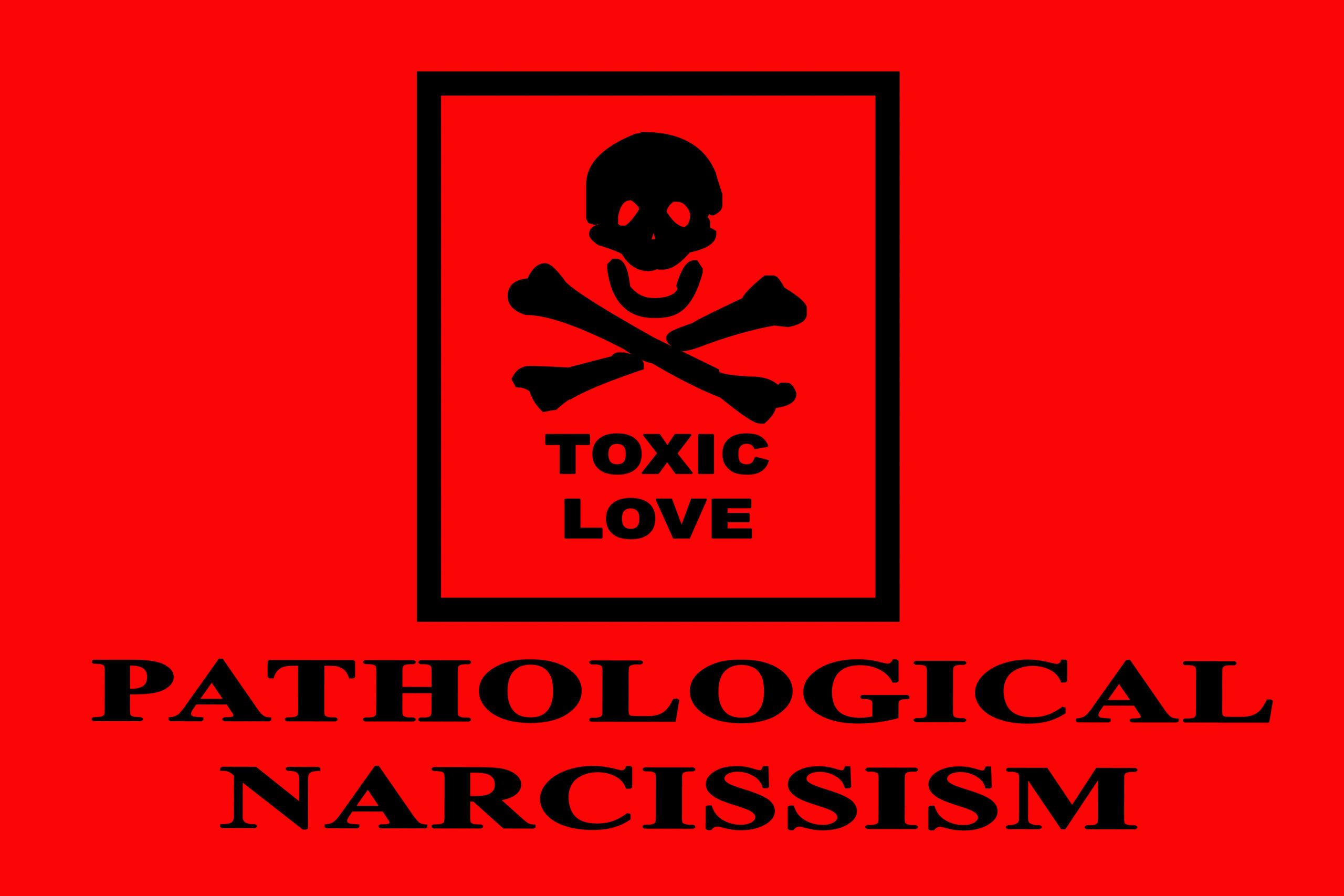In the early days of trying to figure out whether my ex-boyfriend was a narcissist and/or whether I was being abused, I would search the Internet and devour article after article, reading about the signs of narcissism and patterns of abusive narcissistic behavior.
Now, here’s the crazy part.
This is the typical way one of these evenings would go: I’d read an article, going straight down the list of warning signs. Check. Check. Check.
Hmm, I’d think. That is exactly what’s happening. But I’d better read another one just in case.
So I’d find another article and do the same thing.
Check. Check. Check.
Still, I’d think, I’d better read another one.
The articles drilled into my sleep-state, trying to pry open my eyes. That “awake” part of me would think, “Someone has wrenched open my brain and is articulating exactly what’s been happening in my life. How can this be?”
And yet, I’d keep reading, searching, for the article that would prove it all wrong.
The pain of believing it was too much to accept in the five minutes it had taken me to read one article or even the three hours I’d spent in one evening poring over a few dozen.
But I’d know it. Deep down, I’d know it.
Seeds were planted, but what I read about the signs of a narcissist must seep in around the barrier he used to keep it out. When I saw him, it was as if those things didn’t exist.
I would promptly dismiss them all and convince myself that the pattern wasn’t actually there. I’d stop looking things up and let him wrap me in his beautiful cocoon of false promises, where I didn’t have to believe such things.

How to Use a Comprehensive List of the Signs of Narcissism
How can you tell your partner is a narcissist or you’re being abused? What are the signs?
Here is a fairly comprehensive list of red flags of narcissistic behavior. All of these things may or may not be present.
How not to use the list:
Do not use these red flags to discount the fact that you are not in a relationship with a toxic person because you can find a way to deny something in it or rationalize it. Toxic is toxic.
In other words, do not use the list to bind yourself to a person who is exploiting you.
It doesn’t matter what kind of “toxic” that person is. Don’t worry about whether your partner is narcissistic, a “full-blown” narcissist, a malignant narcissist, a sociopath, a psychopath, or any diagnostic label at all or what type of narcissist he or she might be.
Those types of questions can be useful for helping us to figure out other things, but not in simply trying to figure out whether we are being abused.
The danger is that staying too focused on what he or she is rather than how he or she is treating you can keep you in the relationship doubting whether he or she is anything at all.
It can keep you wrapped up in the “what ifs” of whether change is possible, or the fascinating and endless loop of trying to figure out just how bad it really is.
It does not matter.
You know.
You already know the answer. You’ve known for a long time. You don’t even need the validation.
You know.
But just in case you need to see it in writing now or later, just in case you need to see it one, five times, a dozen times or a hundred, here is a list of ways to tell that you are witnessing narcissistic behavior.
Use it to help you get to the place where it finally forces that “deep down” place where you already feel it’s true to emerge and drive a wedge between the two of you so you can stop letting the narcissist exploit you.

101 Warning Signs Your Partner is a Narcissist
1. You have a gut feeling that something is off, that there are things about them that you don’t know.
2. You hear conflicting stories about them that don’t make sense.
3. You catch them in lies, even lies that it would make no sense to tell.
4. You find them being friendly with people that you hear them speak ill of when those people are not around.
5. They get upset not only about little things, but things that don’t even seem logical or that make sense. You can’t understand why anyone would get upset about those things, even if they were just having a bad day. The anger comes out of nowhere.
6. You find yourself doing things that you have never done in the past or feeling things in response to a partner’s behavior that you have never felt in similar situations with others or in the past.
7. They are constantly accusing you of cheating.
8. When you try to engage them in conversation about something that’s happened in the relationship that you found unfair or hurtful, the conversation devolves into nonsense and they end up turning it back around on you and accusing you of starting an argument.
9. The love-bombing was once over the top and you felt you had found a soulmate.
10. Their actions don’t match the words they say most of the time.
11. They go from loving you to hating you in an instant or can suddenly pretend as if you don’t even exist.
12. They rarely express remorse or if they do, they go right back to doing the things they said they were sorry about.
13. You find yourself isolated from people you care about.
14. They talk badly about people or things you care about and pressure you to avoid these things.
15. They keep in constant contact with you when the two of you are not together and couch it in concern.
16. They look for hidden meanings in what you said and take neutral things as criticism.
17. They frequently break their plans with you but expect you to change yours at the drop of a hat to be with them.
18. You witness them controlling information, only giving out enough and/or saying things to others to get what they want.
19. You find yourself suspicious of people that you’ve never met because of things they’ve told you about them.
20. They do horrible things but somehow have an explanation for everything.
21. You find yourself feeling anxious when you’re around them, unsure of how they’ll react.
22. They talk to people they frequently said they couldn’t stand and act like you’re crazy if you bring it up.
23. You find yourself defending them or hiding their terrible actions from others.
24. You don’t want to call their behavior abusive or maybe it doesn’t even feel like abuse–it just feels so confusing…
25. When they leave, you desperately miss them and don’t understand why.
26. You feel as if you have a special connection to them.
27. You feel as if you must constantly check your phone and remain in constant contact with them when the two of you are apart–or something bad will happen.
28. They have a phone full of people with whom they have been in relationships in the past or people they just met but don’t want you to even have friends of the same sex.
29. You can’t focus on anything and become obsessed with trying to sort out the relationship.
30. You find yourself having to choose between pressing them on petty lies or letting those things go.
31. Some of the lies they tell are so extensive as to encompass living entirely different lives and creating personas for themselves that don’t exist.
32. You feel as if you are losing your memory.
33. They bait you into reacting and then use your reaction to make you feel as if you are to blame for the demise of the relationship or as if you deserve how they’re treating you.
34. They use things you told them against you and tell others things you have told them in confidence.
35. You’re getting physically sick.
36. You’ve lost your self-esteem.
37. You’ve lost your job, financial status, or other basic forms of survival or ways of supporting yourself.
38. They’ve forced you into doing things you didn’t want to do.
39. They’ve made threats to hurt you emotionally or physically.
40. People in your life have turned against you because of your relationship.
41. They’ve encouraged you to engage in deviant behavior then threatened to use it against you.
42. You want to leave but you can’t stop talking to them.
43. You wish they would leave you alone but you want them to contact you.
44. They invade your privacy.
45. They spend long periods of time in the bathroom, making up excuses about what they’re doing there.
46. You begin to dissociate or withdraw.
47. You always have the feeling that something is wrong.
48. You are verbally abused then called too sensitive.
49. You are constantly on edge because there is no rhyme or reason to how or why something that you say will set them off and a night with them will suddenly turn into a nightmare. Then they pretend as if it never happened, not apologizing for their behavior.
50. You are living by a set of double standards in which it’s okay for them to do something, but not for you to do the same thing.
51. You find yourself apologizing even though you sure what you did wrong.
52. You often feel as if they are competing with you or jealous of you and want to sabotage you.
53. You often feel as if, when they see you happy and they were not the source, they purposely try to do something to ruin it. Holidays, birthdays and special days almost always end in misery.
54. You are full of questions and never get any answers.
55. You often aren’t allowed to choose what to watch on television when the two of you are together, and when you do, it’s ridiculed or criticized.
56. They force you to hang out with their friends, but may then put you in a double bind by accusing you of being unfriendly if you don’t interact with their friends enough or of flirting if you interact with them “too much.”
57. They often claim to have had unfaithful or “crazy” exes who treated them badly in the past to excuse why they treat you so badly now, along with many other excuses.
58. They often compare you to past exes, at first favorably. Deeper into the relationship, they may begin to compare you unfavorably with exes in order to control your behavior: “My ex never did that…” or “My ex always did that…”
59. You often feel as if your partner is two different people and you’re constantly trying to figure out which one is the “real” one.
60. Their reaction to being confronted about the harmful effects of their behavior is smug anger or even indifference, rather than remorse.
61. They react with anger when they feel as if you have kept something hidden from them or have not included them in a decision or activity.
62. They intentionally keep some of their behavior and thoughts hidden.
63. You are not allowed to have natural human reactions and emotions to normal events.
64. Their response to your emotions is usually to leave or to put the focus back on themselves.
65. If they feel as if you have wronged them–whether you have or not–they will find a way to punish you for it.
66. They behave one way in public and another way in private when you are the only one around.
67. You find yourself finding justifications for their behavior, such as, “He’s just a passionate person,” or “He’s been hurt so much in the past,” or “He’s just having a bad day.”
68. Your friends and family have told you that you should get away from him or her, or that you’re not the same person you used to be.
69. You’re always wishing for the “good old days” that existed when you first met your partner.
70. You sometimes feel afraid of your partner.
71. You sometimes feel very guilty, such as when you think about leaving your partner or when you tell someone about how your partner has treated you. Sometimes you feel guilty and you’re not even sure why.
72. Your partner is a serial cheater.
73. Your partner is good at making himself or herself out to be a victim and you have learned that he or she will even betray you in order to do it.
74. Your partner has threatened to kill you or himself or herself if you leave the relationship.
75. Your partner has threatened to get the police involved if you leave the relationship or has made other dramatic threats to your safety or well-being if you said you would leave.
76. Your partner tries to control how you dress, where you go, or how you spend your time.
77. They leave the relationship every time they don’t get the reaction they want, but they always come back, and each time you feel as if you have to give up more and more of yourself if you want them to stop doing that. You realize it means you have to stop asking them about certain subjects, for example.
78. When you’re expressing strong emotions or crying, they often have absolutely no emotion at all or even seem annoyed or amused by your pain.
79. They disappear for days or weeks at a time and become unreachable and you have no idea where they are.
80. Your life is full of chaos and drama, and you don’t understand why it never seems to end.
81. You feel as if you are losing yourself in the relationship.
82. You don’t recognize yourself anymore.
83. Your life feels as if it is at a standstill. You don’t have any hobbies or other interests anymore. Your entire life revolves around them.
84. You feel as if you’re going crazy.
85. You may have considered suicide because you can’t figure out how to leave the relationship.
86. You know something is very wrong and you knew something was wrong with them a long time ago, but you can’t seem to wrap your head around what or why they can’t just stop acting this way no matter how many times you tell them that their behavior hurts you.
87. The relationship changed and you’re not sure when or how, but things that were okay at the beginning of the relationship now aren’t. It’s like everything is turned inside out.
88. Sometimes they act like the person you remember and promise to change and you wonder if this time things will be different, but there is always the underlying sense of dread that they are still up to the same things they always were.
89. YOU DON’T UNDERSTAND ANYTHING AND NOTHING MAKES SENSE — YOUR LIFE, THE RELATIONSHIP, YOUR PARTNER, THE WORLD — AND YOU JUST WANT THINGS TO MAKE SENSE AGAIN.
90. You are often told that the things you think and do are wrong.
91. You argue about the same thing over and over and they never seem able to put themselves in your shoes to understand your perspective.
92. They do things that you’re not “allowed” to do.
93. They make you feel ashamed for things that have never even happened or for having normal human reactions to crazy situations.
94. You find yourself playing detective because you have such a strong gut feeling that the things they’re telling you are lies, and you begin to check up on what they’re saying.
95. You have thoughts that don’t match the emotions you’re having, for example, you feel as if you want to leave the relationship but for some reason, you think you should stay near them.
96. They treat you as if you are inferior to them and you’re not owed things such as explanations or dignity.
97. They reword what you say and twist your words into meanings that you never intended, and no matter what you say you can’t convince them that is neither what you said nor intended.
98. They make what you want to do so unpleasant or difficult if you choose to do it (by doing many of the things on this list, many of which may have gone unnoticed for a long time), then say that they never stopped you from doing it, making you feel confused about why you felt as if they were stopping you.
99. You feel as if you are losing your sanity.
100. You have been desperate for answers and turn to the Internet and find information about narcissism, but you promptly dismiss all the red flags and warning signs you read about narcissism soon as he or she comes back into your life.
And finally…
101. You are constantly confused about whether what you witness is, in fact, narcissistic behavior or not or about whether you are being abused. You are either in denial about whether any of this information could be true or are obsessed with trying to figure it out, and you keep re-reading articles like this one again and again, or going over the items in this list applying them to your life and trying to decide how they do or don’t fit or how he or she will be different in the future.
You want to know, “Am I being abused by a narcissist?”
If you’re reading this… the answer is probably yes.
NOTE: I recognize this is a painful article to read. If you are in the middle of your relationship trying to get out, I know how torn reading it makes you feel. I hope you will keep it and save it and read it as you feel you can. I believe in you.
Assistance with Recovering from a Breakup with a Narcissist
I’m always on the lookout for new and high-quality resources for survivors. Are you struggling with how to leave your narcissist partner? This course on the five steps you can take to exit can help. Are you having trouble recovering from the relationship even after it’s over? Try enrolling in this Webinar on getting started with your recovery so you can start to get off the emotional roller coaster or this one on using EFT Tapping to break the addiction to the narcissist. Lovefraud webinars on relationship abuse are presented by experts but also from the perspective of experience. Almost every instructor learned about the behavior of sociopaths in relationships the hard way. They’re affordable and offer practical information you can start using immediately. If you decide to try one, send me an email and let me know how it went!
Want more? Please take a moment to sign up and get future articles delivered straight to your inbox.
Don’t forget to check out these resources:






6 Comments
Karen
This has helped me so much! I have read every word-some a few times. I’m really fortunate in that the relationship lasted only 4 months and the person lives 100 miles away. He started the relationship with moving very fast-proposing after our first date. He always called me and never answered his phone when I called him. When I questioned him, I got the silent treatment for a weekend.Then he suddenly needed a new phone r he would say he hadn’t received my texts. Then he cancelled our plans because his son needed surgery on his arm. a couple weeks later his mother slipped on the ice and hurt herself. A few weeks after that, he got the flu. Always hoovering in between these episodes and lies. As things continued and I questioned him more, he blocked me on his phone, then would suddenly came back again with hoovering and love bombing and more stories. I’m a journalist and kept researching and found out he is married and has small children. He is not a bacteriologist like he told me; he is a waiter in a burger joint. He even told me his father died but the man is alive and well. He showed up at my house at 5 am one day “to surprise me”. He constantly made called me to say he was “coming to see you tomorrow” then wouldn’t show up. i haven’t seen him in over a month, thank god but I kept communicating with him and trying to “figure him out”. After reading all this, I couldn’t block him and go no contact fast enough. I had the chills and was totally freaked out but all this wisdom has made me strong. I used the hotline and the person I spoke with was so great and talked me through my BUTS . Thank you so much, Kristin. I do believe you have saved me from this misery I’ve been in.
MamaJen929
I know my ex is DEFINITELY a narcissist, but one set of “symptoms” always mentioned is starkly different for me. Rather than jealousy and control, there was neglect, and the control came through the neglect (things needed to be taken care of — like the home and the kids, for example — but the responsibility ALWAYS fell on me, and still does).
He always said that I could go do fun things (like he always got to do through connections with friends and clients), but he knew perfectly well that I didn’t have the same resources available to me, and that I was extremely frugal (he had plenty of on-the-side expenditures I was unaware of, leaving much less money for “us.” While I was feeling immense guilt and shame by begging for financial help from my fixed-income parents and our church, and pouring in hours and hours on various financial assistance applications, he was having affairs and had a secret cellphone and a secret car).
Even the times he came home from “work” to “give me a night off” were actually about him being able to participate in online … um… “extra-curricular” activities.
The divorce agreement and the circumstances behind it are even worse than the abuse during the marriage. I’m working with a lawyer right now to try and overturn the forced agreement, and if he ever does get physically violent, now will be the time.
How ludicrous is it to actually secretly wish for the physical violence because it’s easier to prove. Some of my friends think he’s much too careful and methodical for that. Others worry it’s simply the next step, since he has now crossed absolutely every other line and method of abuse.
Also, FYI: I have learned that DOMESTIC VIOLENCE is DEFINED as MORE THAN JUST PHYSICAL! Because it’s all about CONTROL, PHYSICAL VIOLENCE USUALLY BEGINS WITH THE OTHER KINDS OF ABUSES (verbal, emotional, financial, etc.). For this reason, if you haven’t left your narcissistic abuser yet, and even if you have, it’s important to have a safety plan in place. I even filed a report at the YWCA. That’s additional proof for me (or my family) down the road, if needed.
Amanda
So many of these ring true, including many that I had not yet identified. And especially helpful is number 101 since I keep finding myself re-reading articles I’ve gone back to over and over again. I do know the truth but it is sometimes hard to acknowledge when I remember those “good” times. I’m fortunate that I can go no contact and I try to go easy on myself when I start to reminisce and forget what he is. It was a very long relationship and I have a lot of healing to do. I know I’m on the right path. So many of your articles have helped me make sense of the relationship and my recovery. Thank you.
Beth
I don’t even know what to say here. This article. Wow. Literally every single thing on the list. The way I feel reading this is nothing I can describe. Even the little things he would do that are “silly” to even think about, or didn’t seem like it was anything are ON YOUR LIST. Why do they do these things? Why do they use our kids as weapons? How do they keep getting away with these things and when will it ever stop? I am trying the no contact thing. Our child’s psychologist recommends it – but he keeps getting the Court to Order me to keep in contact him “for the child”. It’s outrageous the things he does and I just don’t know what else to do. Grey rock. Whatever, that makes no difference. He ups the anti every time. During exchanges he gets physical with me, keeps asking the same questions over and over and over, laughs at me, brings people along who approach my vehicle, there is always something. No matter what, there is always something. I want out of his grasp.
Kristen Milstead
Hi Beth: I’m so sorry about what you’re going through. I don’t know what it’s like to have a child with a man like this, but I sympathize with the additional pain that he is able to cause you because of it. Someone told me about a website called Talking Parents (https://talkingparents.com/home). It forces them to communicate with you only through this and creates a record of everything they say, and, meanwhile, you refuse phone calls and texts that don’t come through it. If he starts something in person, then you could perhaps you can start recording conversations that occur when he picks up or drops off your child, if you live in a state where only one of you needs to be aware that a recording is taking place. You could also arrange for a friend to be with you or for the drop-offs to occur in public. These are just a few things that come to mind; there are probably others that those who have lived through it have to beat these people. Also, try Tina Swithin’s website (Tina Swithin dot com). She has a website about divorcing a narcissist. I know two of the best things you can do is create a record and don’t show a reaction. It seems as if you’re doing well working with the second one and grey rock. Don’t give up and please stay strong! -Kristen
Sela
Hi Beth,
I am in the same exact situation. I’m with Kristin – Grey Rock and no reaction. Everyday is a new challenge, and there is nothing like trying to live with unpredictable behaviors, even after you leave. I wish you the best and I wish the best for you son or daughter. Stay strong, otherwise he will sense it and you know what happens next. I am never alone with him or near him. Be safe and my wish for you is the best possible outcome.